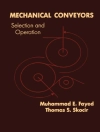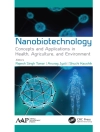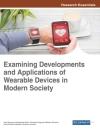- Emphasises advances in understanding pig behaviour as the foundation for understanding and improving welfare
- Comprehensive coverable of welfare issues across the value chain, covering breeding and gestation, farrowing and lactation, weaning, growing and finishing as well as transport, lairage and slaughter
- Particular focus on ways of assessing and reducing pain in such areas as tail docking and castration
Inhaltsverzeichnis
Part 1 Determinants of behaviour
1.Advances in understanding the genetics of pig behaviour: Lotta Rydhmer, Swedish University of Agricultural Sciences, Sweden;
2.Developmental influences on pig behaviour: Giuliana Miguel-Pacheco and Yolande M. Seddon, University of Saskatchewan, Canada;
Part 2 Management of behaviour in different production stages
3.Optimising pig welfare in breeding and gestation: Paul H. Hemsworth, University of Melbourne, Australia;
4.Optimising sow and piglet welfare during farrowing and lactation: Emma M. Baxter, Animal Behaviour and Welfare Team, Animal and Veterinary Sciences Research Group, SRUC, UK; and Sandra Edwards, Newcastle University, UK;
5.Optimising pig welfare at the weaning and nursery stage: Nicole Kemper, University of Veterinary Medicine Hannover, Germany;
6.Optimizing pig welfare in the growing and finishing stage: Arlene Garcia and John J. Mc Glone, Texas Tech University, USA;
7.Optimising pig welfare during transport, lairage and slaughter: Luigi Faucitano, Agriculture and Agri-Food Canada, Canada; and Antonio Velarde, Institute of Agrifood Research and Technology, Spain;
Part 3 Current welfare issues
8.Evidence of pain in piglets subjected to invasive management procedures: Armelle Prunier and Céline Tallet, PEGASE, INRAE, Institut Agro, France; and Dale Sandercock, Scotland’s Rural College (SRUC), UK;
9.Alternatives to castration of pigs: Emma Fàbrega, IRTA, Spain;
10.Understanding and preventing tail biting in pigs: Sandra Edwards, Newcastle University, UK; and Anna Valros, University of Helsinki, Finland;
11.The role of enrichment in optimizing pig behaviour and welfare: Sandra Düpjan and Liza R. Moscovice, Institute of Behavioural Physiology – Leibniz Institute for Farm Animal Biology Dummerstorf, Germany; and Birger Puppe, Institute of Behavioural Physiology – Leibniz Institute for Farm Animal Biology Dummerstorf and University of Rostock, Germany;
Part 4 Assessment of welfare states
12.Physiological and behavioral responses to disease in pigs: M. D. Pairis-Garcia and B. K. Wagner, North Carolina State University, USA;
13.Assessing emotions in pigs: determining negative and positive mental states: Eimear Murphy, Luca Melotti and Michael Mendl, Bristol Veterinary School, University of Bristol, UK;
14.Welfare assessment of pigs: Björn Forkman, University of Copenhagen, Denmark;
15.Advances in technologies for monitoring pig welfare: Maciej Oczak, University of Veterinary Medicine Vienna, Austria; Kristina Maschat, FFo QSI Gmb H, Austria; and Johannes Baumgartner, University of Veterinary Medicine Vienna, Austria;
Über den Autor
Dr Sandra Düpjan completed her doctoral thesis at the Leibniz Institute for Farm Animal Biology (FBN), Germany. Her research typically focuses on bioacoustics and the assessment of affective states in the context of animal welfare.












